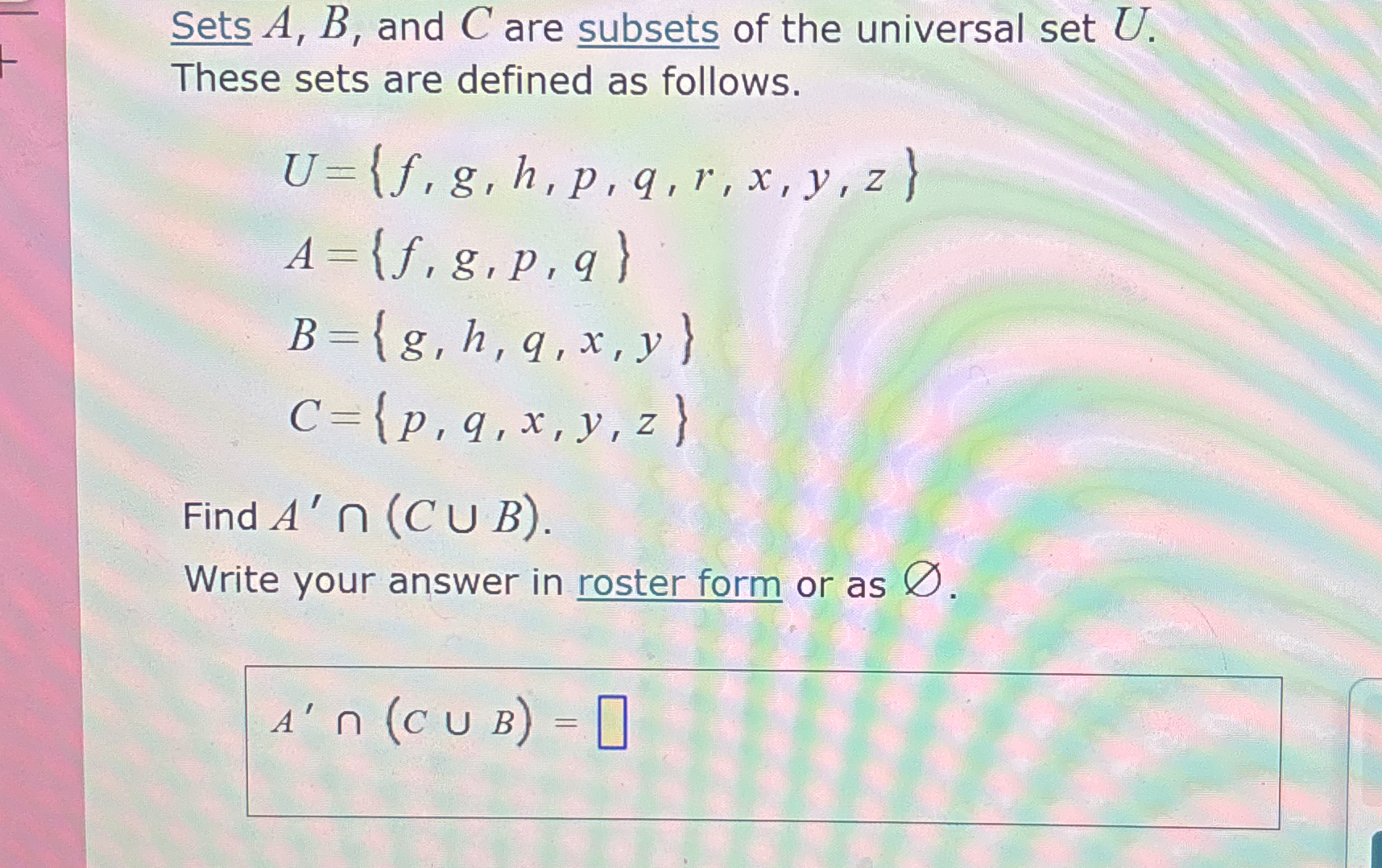Given the sets U={f,g,h,p,q,r,x,y,z}, A={f,g,p,q}, B={g,h,q,x,y}, and C={p,q,x,y,z}, find A' ∩ (C ∪ B). Express your answer in roster form or as Ø.

Understand the Problem
The question asks to find the intersection of the complement of set A (denoted as A') with the union of sets C and B (denoted as CUB). The universal set U and sets A, B, and C are defined, and we need to express the answer in roster form (listing all elements) or as the empty set (Ø).
Answer
$\{h, x, y, z\}$
Answer for screen readers
${h, x, y, z}$
Steps to Solve
-
Find A' (the complement of A) The complement of A (A') consists of all elements in the universal set U that are not in A. $U = {f, g, h, p, q, r, x, y, z}$ $A = {f, g, p, q}$ $A' = U - A = {h, r, x, y, z}$
-
Find C ∪ B (the union of C and B) The union of C and B (C ∪ B) consists of all elements that are in C, or in B, or in both. $B = {g, h, q, x, y}$ $C = {p, q, x, y, z}$ $C \cup B = {g, h, p, q, x, y, z}$
-
Find A' ∩ (C ∪ B) (the intersection of A' and C ∪ B) The intersection of A' and (C ∪ B) consists of all elements that are in both A' and (C ∪ B). $A' = {h, r, x, y, z}$ $C \cup B = {g, h, p, q, x, y, z}$ $A' \cap (C \cup B) = {h, x, y, z}$
${h, x, y, z}$
More Information
The intersection of the complement of A and the union of C and B contains only elements present in both A' and C ∪ B.
Tips
- Incorrectly calculating the complement: Forgetting to include elements from the universal set that are not in set A.
- Incorrectly calculating the union: Including duplicate elements or missing elements from set B or set C.
- Incorrectly calculating the intersection: Including elements that are in only one of the sets A' or (C ∪ B), instead of elements that are in both.
AI-generated content may contain errors. Please verify critical information